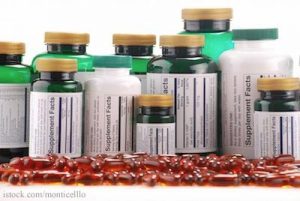A study just published in the online version of JAMA Internal Medicine has found that more than half of all caffeinated dietary supplements carry inaccurate labels. Those products, such as Monster Energy Drink and 5-hour Energy, are being investigated by the FDA because they have been associated with illnesses and death. In fact, Monster Beverages was sued in October 2012 after a 14-year-old died after drinking the product.
 In 2011, the Substance Abuse and Mental Health Services Administration reported that energy drinks pose potentially serious health risks, leading to a sharp increase in emergency room visits between 2005 and 2009. There have been 13 adverse event reports to the FDA about 5-hour Energy.
In 2011, the Substance Abuse and Mental Health Services Administration reported that energy drinks pose potentially serious health risks, leading to a sharp increase in emergency room visits between 2005 and 2009. There have been 13 adverse event reports to the FDA about 5-hour Energy.
The laws regulating labeling of supplements are quite lax, allowing manufacturers to avoid listing the amount of caffeine on the label of their products. But the energy drinks didn’t even comply with those requirements. The study looked at excessive caffeine consumption and heat-related injuries among athletes and military personnel. Researchers looked at 31 supplements and found that “caffeine amounts listed on the label of 25% of the products varied widely from chromatographically determined levels, with ranges from 27% to 113% of the labeled quantity.” Another 30% listed caffeine on the label, but did not specify an amount. Those products had “high amounts of caffeine”, ranging from 210 to 310 mg per serving.
For most healthy adults (NOT those under the age of 18), an intake of 400 mg of caffeine per day is not very risky. But consuming more than that, especially when combined with other stimulants found in those products and exercising in high temperatures, can cause serious illness. The U.S. does not specify a daily caffeine limit for children, but the Canadian guidelines state they should consume no more than 45 mg per day.




